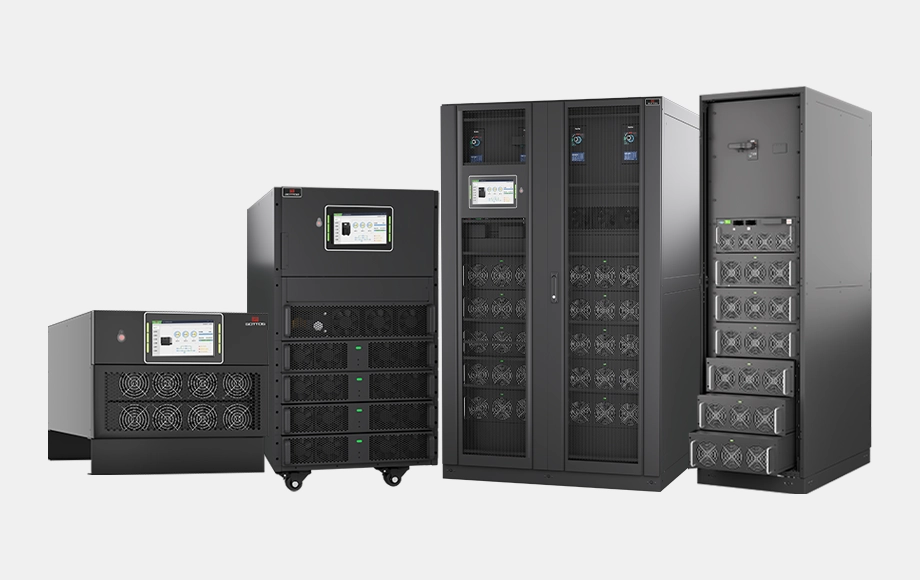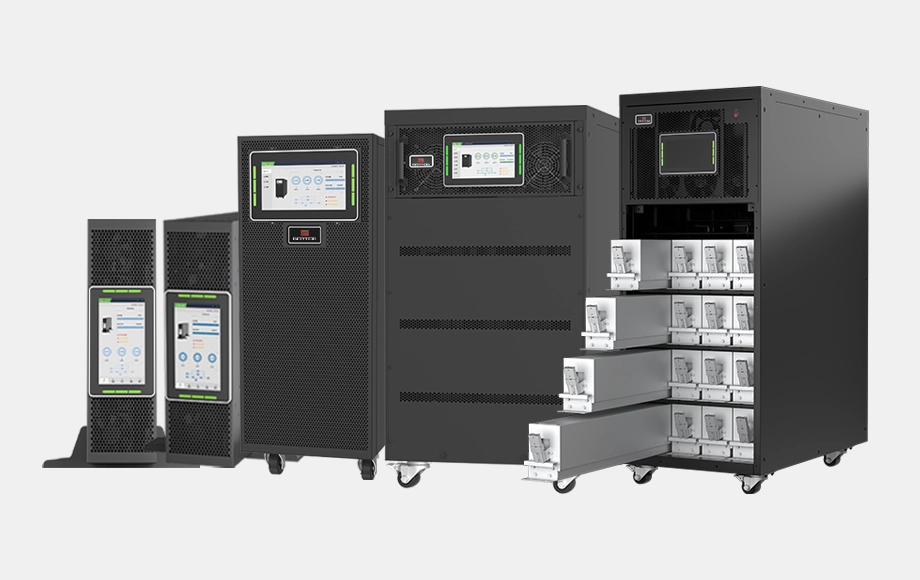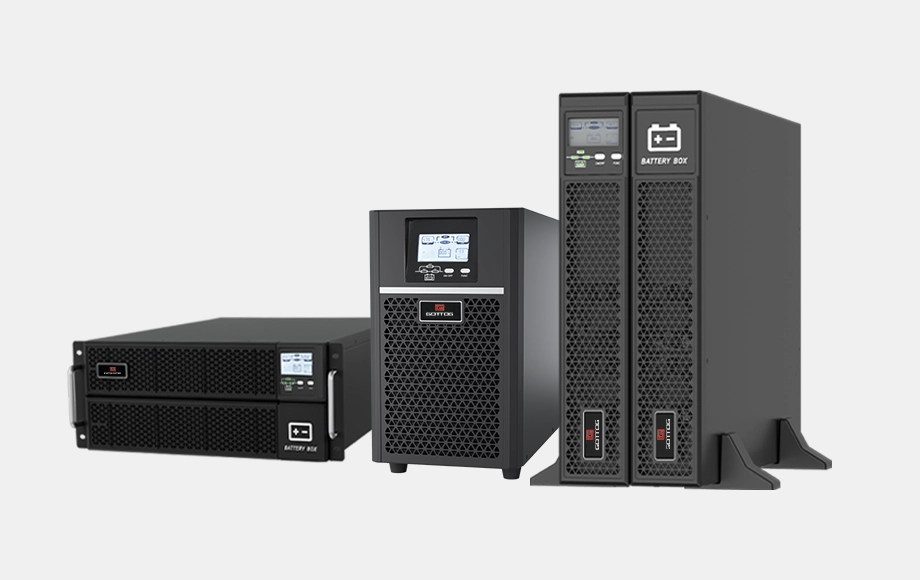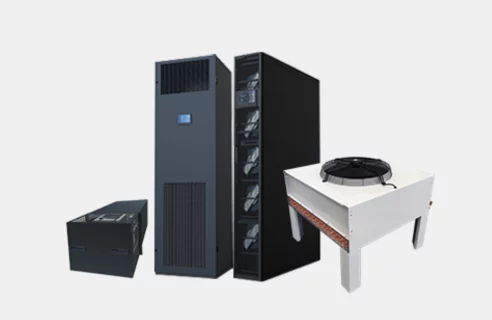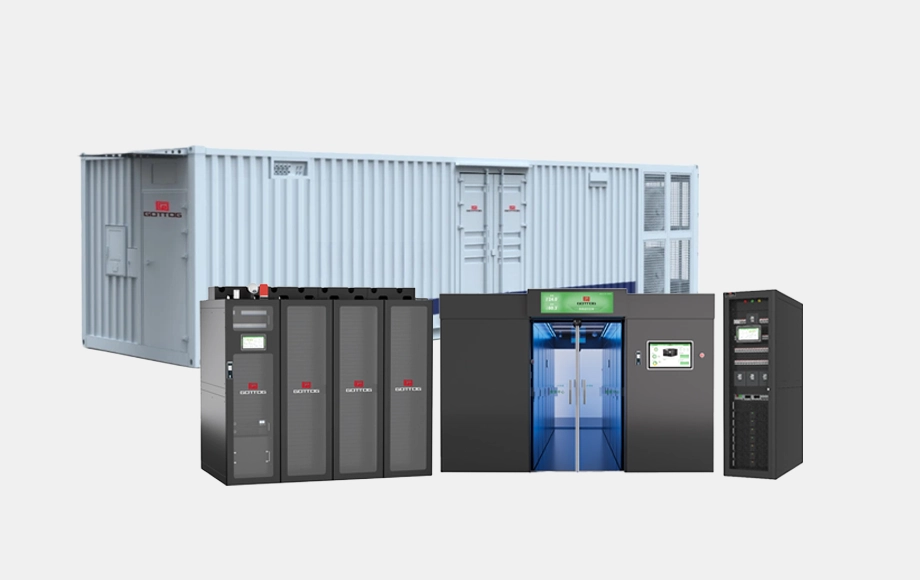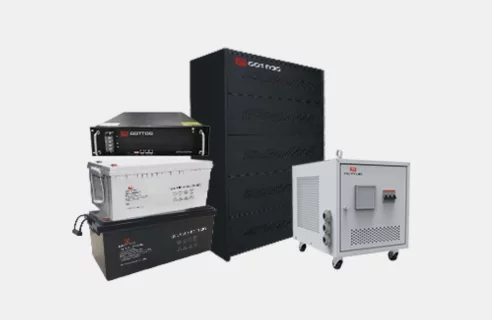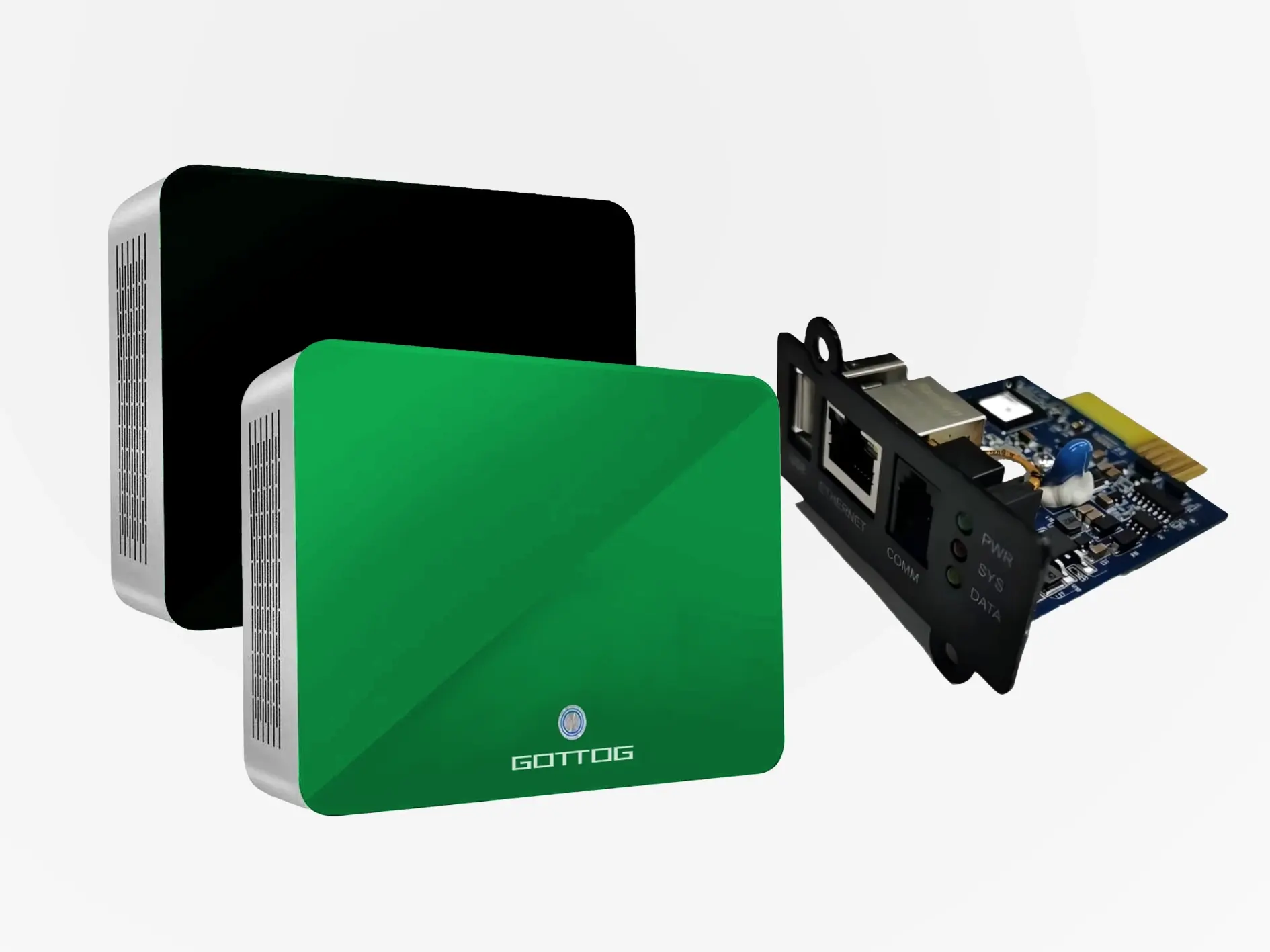A Flexible Selection Guide for Data Centers and Industrial Users
In the field of data center uninterruptible power supply (UPS) systems and industrial power protection, battery technology is undergoing a transformation. With the advancement of lithium battery technology and declining costs, their high energy density, long life span, and low maintenance requirements are increasingly appealing. However, traditional lead-acid batteries still play a significant role due to their low initial cost and widespread use.
When planning new installations, expansions, or upgrades, many organizations face a dilemma: adopt lithium batteries for future-proofing or continue utilizing existing lead-acid investments. Ideally, a UPS system should support both lithium and lead-acid batteries, offering flexibility and investment protection.
GOTTOGPOWER has developed truly hybrid-compatible UPS systems to solve this challenge, giving users unprecedented freedom in battery selection.
1. Why Compatibility Is Crucial
Choosing a hybrid UPS is not just a technical feature—it addresses complex, real-world needs:
· Investment Protection and Smooth Transition
Organizations with lead-acid battery assets want to extend their use and avoid upfront replacement costs. Hybrid UPS systems enable a gradual transition by allowing mixed battery deployments.
· Performance and Budget Optimization
While lithium batteries provide longer life, lighter weight, and faster charging, lead-acid batteries maintain an advantage in cost-sensitive scenarios. A hybrid UPS allows users to select the most suitable battery type for each application, such as high-priority server rooms versus edge infrastructure.
· Phased Deployment Strategy
Large projects can start with lead-acid batteries to minimize initial investment, and later integrate lithium batteries as demands grow, without replacing the UPS hardware.
2. Key Technical Considerations for Safe and Efficient Compatibility
True compatibility requires precise technical integration. Before connecting lithium batteries to a UPS, confirm the following critical parameters:
| Parameter | Description |
|---|---|
| Number of Battery Strings | Number of lithium battery strings connected to each UPS |
| Number of Cells per String | Calculated based on 3.2V per cell; determines total system voltage |
| Capacity per String (Ah) | Affects UPS backup duration and power matching |
| Float and Equalizing Charge Voltage | Proper configuration extends battery lifespan |
| End of Discharge Voltage (EOD) | Prevents over-discharge and protects lithium battery health |
| Charging Rate (C-rate) | Recommended range: 0.3C–0.5C |
| Neutral Line Configuration | Indicates whether the UPS needs to support systems with or without a neutral line |
| Communication Interface Definition | BMS communication protocol or dry contact signal (e.g., CAN, RS485) |
Matching these specifications with the UPS ensures safety, efficiency, and long-term performance.
3. GOTTOGPOWER’s UPS Advantages
GOTTOGPOWER UPS systems go beyond interface compatibility, offering intelligent battery management and real-time system visibility:
· Smart Battery Type Detection
The UPS automatically or manually detects battery chemistry and applies optimized charge/discharge algorithms tailored for either lithium or lead-acid batteries.
· Full BMS Protocol Compatibility
Supports major lithium battery BMS protocols (CAN, RS485) and dry contact control logic, enabling seamless integration with popular battery brands and full remote data acquisition.
· Hot-Swappable Configuration and Remote Monitoring
Enables battery configuration changes online (with permission), and provides real-time monitoring of voltage, current, temperature, SOC, SOH, and alarms via network access.
· User-Friendly HMI Display
The LCD screen clearly displays battery operating status, health indicators, and alarm messages for on-site personnel.
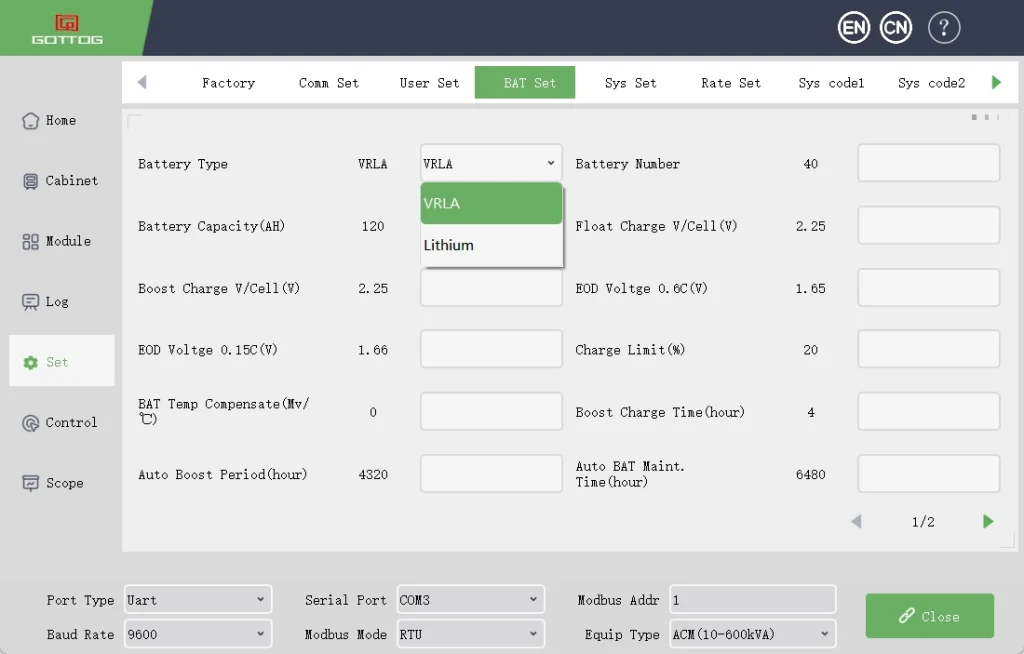
4. Key Application Scenarios
· Data Centers
- Hybrid deployment: Use lithium batteries in high-density areas for space and weight savings, and lead-acid batteries in traditional backup zones to reduce overall TCO.
- Phased upgrades: Start with lead-acid and gradually add lithium batteries as the system expands.
· 5G Base Stations and Edge Computing
Compact, lightweight, long-life lithium batteries are ideal. Hybrid UPS systems support efficient, decentralized power protection in space-constrained environments.
· Healthcare and Financial Institutions
Where power continuity is non-negotiable, lithium batteries offer higher stability and reliability. Hybrid UPS systems allow phased implementation under strict budgets.
· Industrial Manufacturing
- Different production lines may require different battery solutions due to ambient temperature or load type.
- A hybrid UPS platform ensures unified infrastructure, simplifies management, and reduces spare parts complexity.
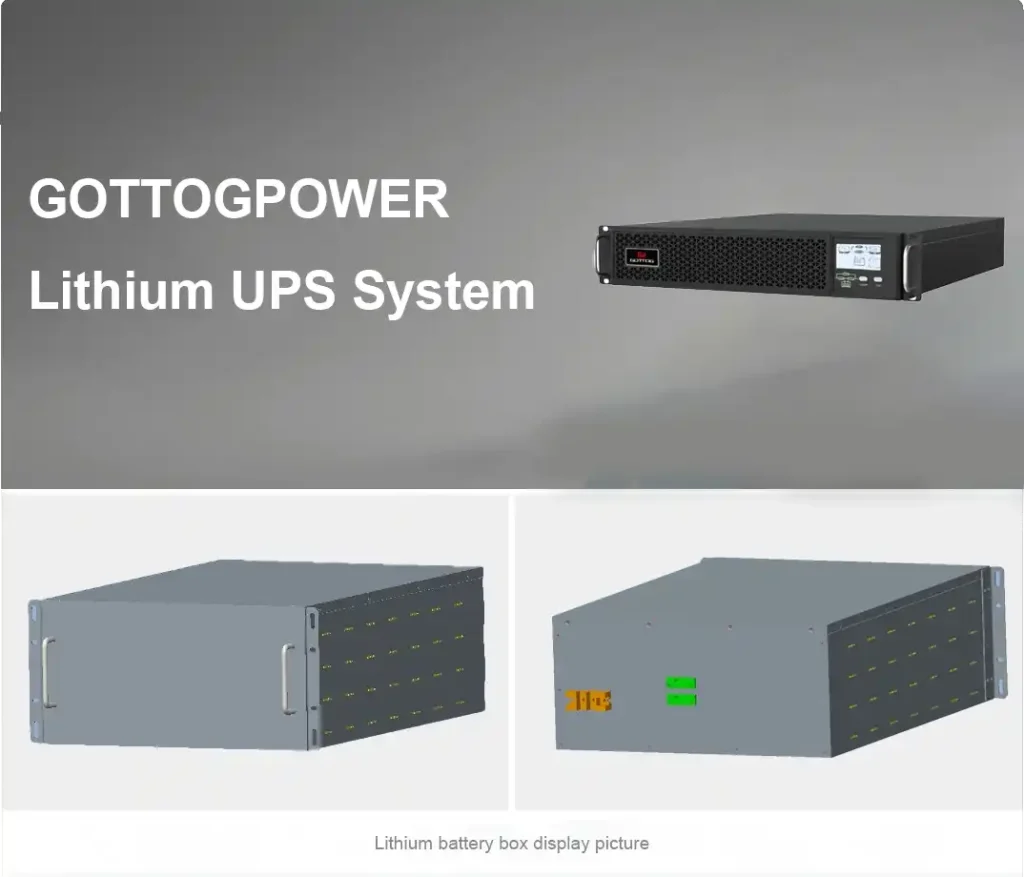
5. Conclusion: Hybrid = Flexibility, Intelligence = Future
The rise of lithium technology doesn’t eliminate the value of lead-acid batteries. In the foreseeable future, both will coexist across various applications. A modern UPS must support both battery types to provide flexibility, investment protection, and a future-ready power infrastructure.
GOTTOGPOWER’s full UPS product line is hybrid-compatible, giving you:
- Flexibility to choose either lead-acid or lithium batteries based on real-world needs
- Enhanced safety with intelligent BMS integration and fail-safe controls
- Smarter operation through remote monitoring and visual battery management
Request More Information
To receive the GOTTOGPOWER UPS Technical Manual or explore industry-specific case studies, contact us today. Our technical experts are ready to provide one-on-one support and help you design the optimal power protection strategy.
E-mail: info@gottopower.com
Phone/Whatsapp/Skype/Wechat: 0086 18326071160; 0086 19746645428

